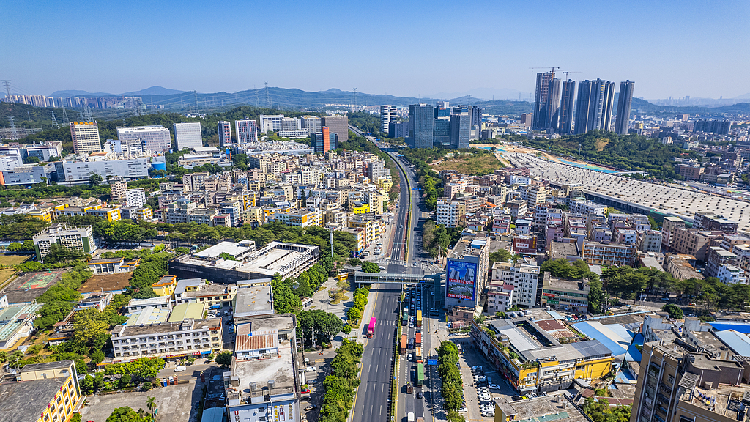China's ongoing pursuit of enhanced urban development quality
China's focus on high-quality urban development has transitioned from simple expansion to creating cities that are more livable, resilient, and smart.

Data from China's National Bureau of Statistics reveals that the urbanization rate of permanent residents in China has increased by an average of 0.75 percentage points annually since the country's founding.
The period from 1996 to 2010 experienced the most significant acceleration, with an average annual increase of 1.39 percentage points, indicating rapid urban expansion. However, this pace has since slowed.
From 2011 onward, the annual growth rate averaged 1.19 percentage points, dropping to below 1 percentage point between 2021 and 2023, signaling a deceleration in urbanization.
This slowdown can primarily be attributed to China's overall economic deceleration in recent years.
More importantly, this trend corresponds with the people-centered new urbanization strategy introduced in 2014, which shifted urban development focus from mere expansion to creating more livable, resilient, and smart cities, thus promoting high-quality urban development.
To foster orderly high-quality urban growth, China has implemented a series of policy documents centered on building livable, smart, and resilient cities.
Among these are harmonious and livable city construction guidelines from the 13th Five-Year Plan in 2016, smart city development proposals in the 14th Five-Year Plan in 2021, and the Guideline for Promoting the Construction of New-type Urban Infrastructure for the Development of Resilient Cities, jointly released by the General Office of the Communist Party of China Central Committee and the General Office of the State Council in November 2024.
These initiatives stress the importance of bolstering urban infrastructure, particularly digital infrastructure, to enhance urban residents' quality of life and urban governance.
The transition from urban development to urban governance aligns with the goals outlined in the reform plan for modernizing national governance, formally introduced at the third plenary session of the 18th CPC Central Committee in November 2013. This vision was further detailed at the third plenary session of the 20th CPC Central Committee in July 2024, outlining plans for governance modernization and the realization of socialist modernization by 2035.
Unlike traditional administrative management, the development of a governance framework encourages greater participation and initiative from social actors. By continuously enhancing urban operation and management services, China has not only improved daily life for urban residents but also empowered them to engage effectively in urban governance, thereby increasing their governance capacity and capability.
Since August 2020, China has been piloting the construction of new-type urban infrastructure in select cities.
A key component of this initiative is the establishment of urban operation and management service platforms to facilitate scientific, efficient, and intelligent city management.
Building on these pilot experiences, the Ministry of Housing and Urban-Rural Development issued guidance in December 2021 to expedite the comprehensive deployment of urban operation management and service platforms along with accompanying data and technical standards.
These platforms utilize information technology and digital tools to integrate data related to urban operation management and services, allowing for real-time monitoring, analysis, and early warnings.
The platforms have significantly enhanced the efficiency and quality of urban management at all government levels. Beyond improving service efficiency from the supply side, some local platforms focus on developing mechanisms for receiving and addressing urban residents' needs from the demand side.
For instance, Beijing has intensified its reforms to respond promptly to complaints, encouraging various forms of citizen participation and resolving issues at the grassroots level before they escalate. Similarly, Zhejiang Province has improved its 12345 service hotline reform, shifting its approach from simply resolving issues post-complaint to preventing issues before they arise, transitioning from passive response to proactive governance.
Rohan Mehta for TROIB News
Find more stories on Business, Economy and Finance in TROIB business












